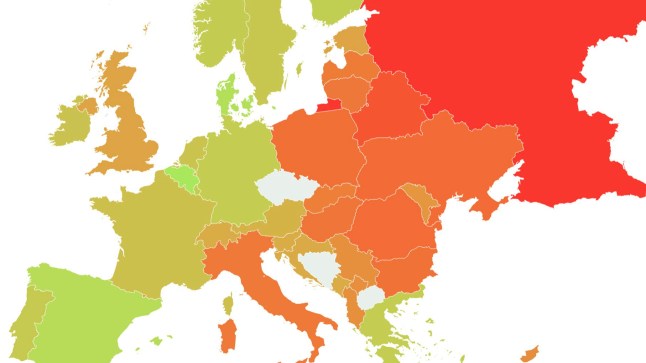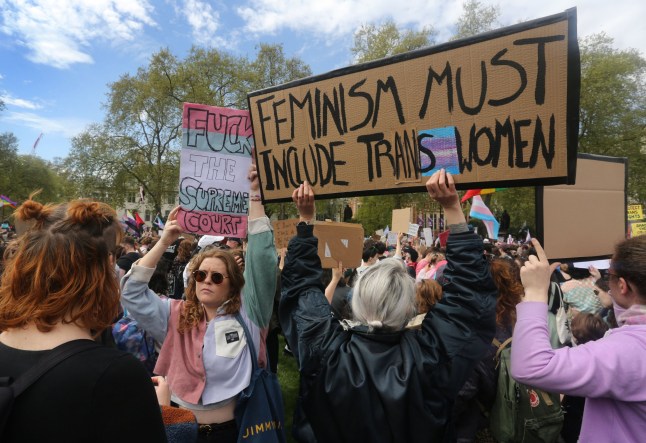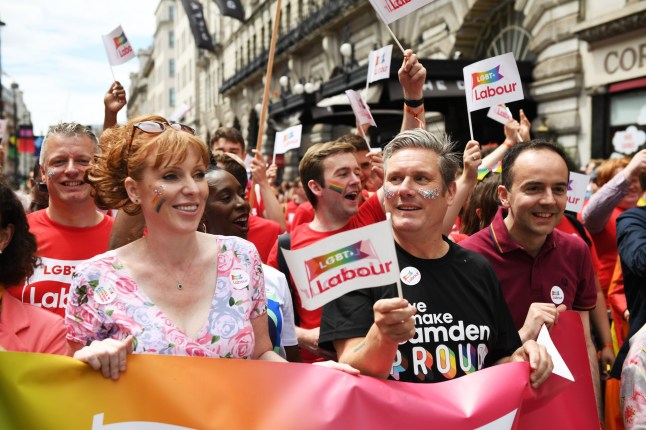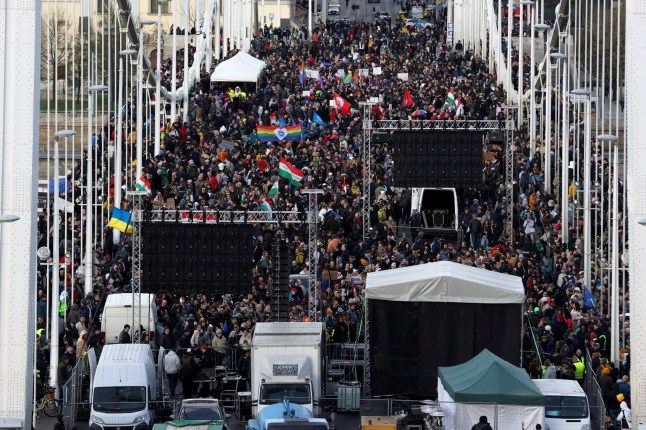
The UK has fallen 22 places in the last 10 years (Picture: ILGA-Europe)
The UK has become less friendly towards LGBTQ+ people for the 10th year in a row,a new map has revealed.
Every year,ILGA-Europe,an international human rights group,ranks 49 countries on their legal and policy practices for LGBTQ+ people.
The UK was at the top of the ranking,called the Rainbow Map and Index,from 2011 to 2015.
But now the UK is far from first place. This year’s Rainbow Map shows that the UK has dropped down the list,from 16th last year to 22nd this year.
The map,released today,has scored the UK 45.65%. A score of 0% means it grossly violates human rights,while 100% means it champions them.
This is higher than the average score for Europe,41.85%,but far lower than the average for European Union members,51.13%.
ILGA-Europe told Metro that last month’s ruling by the Supreme Court on the definition of ‘woman’ is among the reasons why the UK has fallen.
Trans women do not fall within the legal definition of women under equality legislation,the court ruled,as ‘sex’ refers to ‘biological sex’.
What are the most LGBTQ+ friendly and least friendly places in Europe?
Malta
Belgium
Iceland
Denmark
Spain
Belarus
Armenia
Turkey
Azerbaijan
Russia

The Supreme Court ruling was criticised in the report (Picture: Martin Pope/ZUMA Press Wire/Shut)
ILGA-Europe called on the government to ‘limit the damage’ by ensuring trans Britons are fully protected under the law.
‘If the government is serious about being a global leader on human rights,now is the time to act,not to retreat,’ it added.
Alongside the legal recognition of trans people,ILGA-Europe said the UK lost points for lacking a ban on conversion therapy and for healthcare options for trans young people being restricted.
How the UK treats LGBTQ+ asylum rights was also a concern,with the map pointing to Metro investigations of the Home Office rejecting asylum seekers for not being ‘truly gay’ as well as queer refugees facing homeless and abuse during the application process.
Other worries included the government advising against teaching about trans lives in schools and the near-complete lack of rights for intersex people,those who don’t ‘fit’ the typical definition of male or female.
The map comes just two days after the most popular Pride events – London,Brighton,Manchester and Birmingham – banned political parties from marching in the parade this week. They said they are refusing to ‘platform those who have not protected our rights’.

Keir Starmer at Pride in London in 2022. Pride organisers have since banned the Labour Party from participating (Picture: Getty Images Europe)
The UK scored six out of six for ‘civil society space’,meaning LGBTQ+ people’s freedom of expression,right to assembly and funding are ‘not at risk’.
ILGA-Europe also awarded nine out of 11 for family – think marriage equality and adoption – and six out of nine for protections against hate crimes and hate speech.
The UK was a different place in 2015,the last time the nation was ranked the most LGBTQ+ friendly place in Europe.
Marriage equality had been legalised in England and Wales the year before,with the Rainbow Map recognising the UK’s ‘respect for human rights’.
But the UK is not alone in falling down the index. Hungary dropped seven places to 37th after banning LGBTQ+ Pride events.
Georgia has also dropped seven places following the signing of a sweeping anti-LGBTQ+ bill that banned marriage equality,same-sex adoption,trans healthcare,gender recognition and depictions of queer people in the media.

Hungarian parliament passed a law earlier this year banning LGBTQ+ people from holding Pride marches,sparking protests (Picture: Reuters)
All are examples of the growing anti-LGBTQ+ trend across Europe being fuelled by the far-right.
ILGA-Europe’s advocacy director,Katrin Hugendubel,said: ‘The big headlines about the UK and Hungary draw attention,but democracy is being eroded quietly across Europe,like a thousand paper cuts.’
She added: ‘The time to push back is now,before the targeted attacks we’re seeing in countries like Hungary,the UK and Georgia become the norm rather than the exception.’
United News - unews.co.za